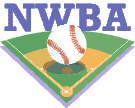|
|
|
Note: You must be registered in order to post a reply.
To register, click here. Registration is FREE!
|
| T O P I C R E V I E W |
| Rapid |
Posted - 07/09/2018 : 07:05:03
One of the most common requests we get from parents is “he or she needs to get stronger in the lower half.” This is indeed an incredibly important quality for a baseball player, especially those who are still developing. Traditional weight lifting (squats, deadlifts, etc.) is a gold standard in terms of creating strength and athleticism, and is one of the hallmarks of our training approach. However, there are several specific drills that can be used to create context for the athlete and fit really well into a training session. Here are 3 of our favorite drills for teaching rhythm and lower body contribution. (All video passwords are Rapidvideo)
https://vimeo.com/270440816 (Lateral Sled Drag)
The lateral sled drag is one of my personal favorites because it forces the athlete to maintain a firm midsection as he or she moves the sled. The outside leg drives through the ground in order to create the force needed to drag the sled. I like to have younger athletes visualize “driving off the rubber” during a pitch. It’s a great low-level drill to create “side to side” force and maintain posture.
https://vimeo.com/247046788 (MB Shot put)
https://vimeo.com/251870114 (Figure- 8 Shot put)
The medicine ball shot put is a great way to teach rhythm, timing, and backside drive. This drill teaches how to draw energy from the floor/back leg and transfer this energy through the ball. Try the figure 8 shot put for an emphasis on rhythm. * Quick note: though the mechanics of this drill are similar to a throw or a swing, it is a medicine ball drill and should be performed and taught as such. If the athlete begins to mimic a swing or throw, they should be reminded of the technique outlined in the video. Be sure to push through the ball, not throw it.*
https://vimeo.com/273950376 (Learn to Rotate)
The learn to rotate (LTR) drill is a great way to kill two birds with one stone. In performing this drill, the athlete learns to dissociate the upper body from the lower body. It also is a great core training drill as the athlete uses the abdominals to control the movements. This trunk/hip dissociation is critical for creating “whip” and power in a good baseball swing or pitch. This is sometimes referred to as the “rubber band” effect. Be sure to pay attention to the position of the hands and the legs in the video. Start with level 1 and progress every 2 weeks or so. This could be a great addition to a warm up.
We hope this is helpful! Have a great week, and as always feel free to comment with questions or topic requests!
All the best,
The Rapid Team
www.go-rapid.com
Andrew Gordon, MS, CSCS
Andrew.Gordon@go-rapid.com
|
|
|
| Georgia Travel Baseball - NWBA |
© 2000-22 NWBA |
 |
|
|




